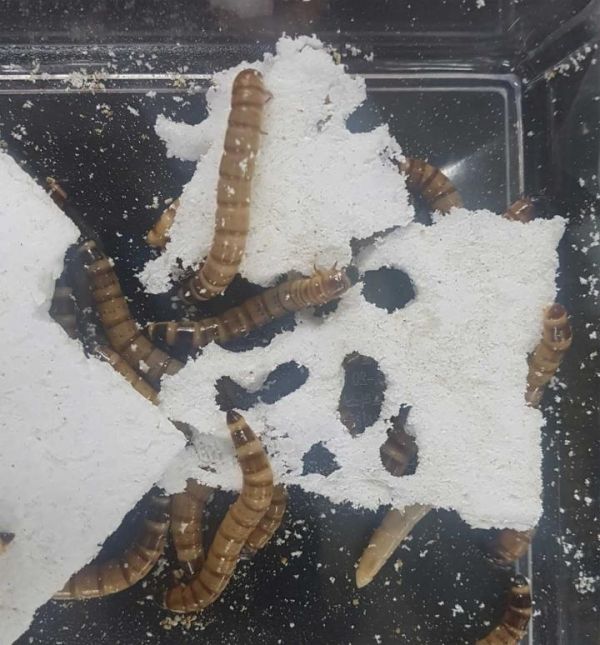Resembling giant mealworms, superworms (Zophobas atratus) are beetle larvae that are often sold in pet stores as feed for reptiles, fish and birds. In addition to their relatively large size (about 2 inches long), these worms have another superpower: They can degrade polystyrene plastic. Now, researchers reporting in ACS’ Environmental Science & Technology have linked this ability to a strain of bacteria that lives in the larvae’s gut.
Polystyrene is used in packaging containers, disposable cups and insulating materials. When thrown in landfills or littered in the environment, the plastic takes several hundred years to completely break down. Recently, several studies have found that mealworms and superworms can ingest and degrade polystyrene within a few weeks. In mealworms, this ability was linked to a certain strain of polystyrene-degrading bacteria in the worms’ gut. Jiaojie Li, Dae-Hwan Kim and colleagues wanted to search for similar bacteria in superworms.
Read more at American Chemical Society
Image: Bacteria from the gut of superworms can degrade polystyrene (white material). (Credit: Adapted from Environmental Science & Technology 2020, DOI: 10.1021/acs.est.0c01495)


